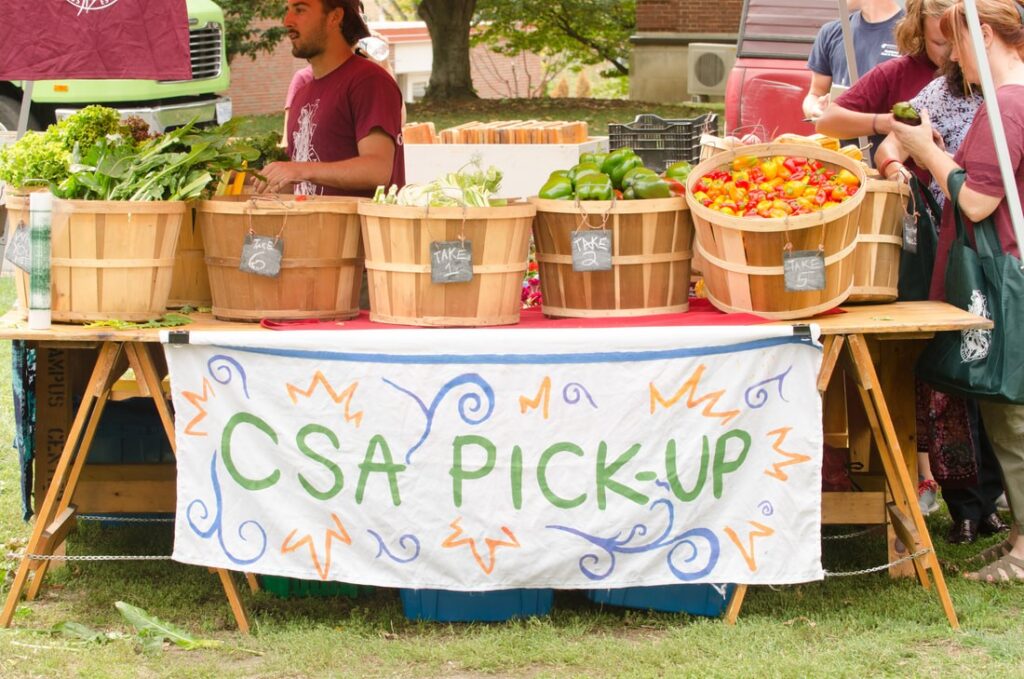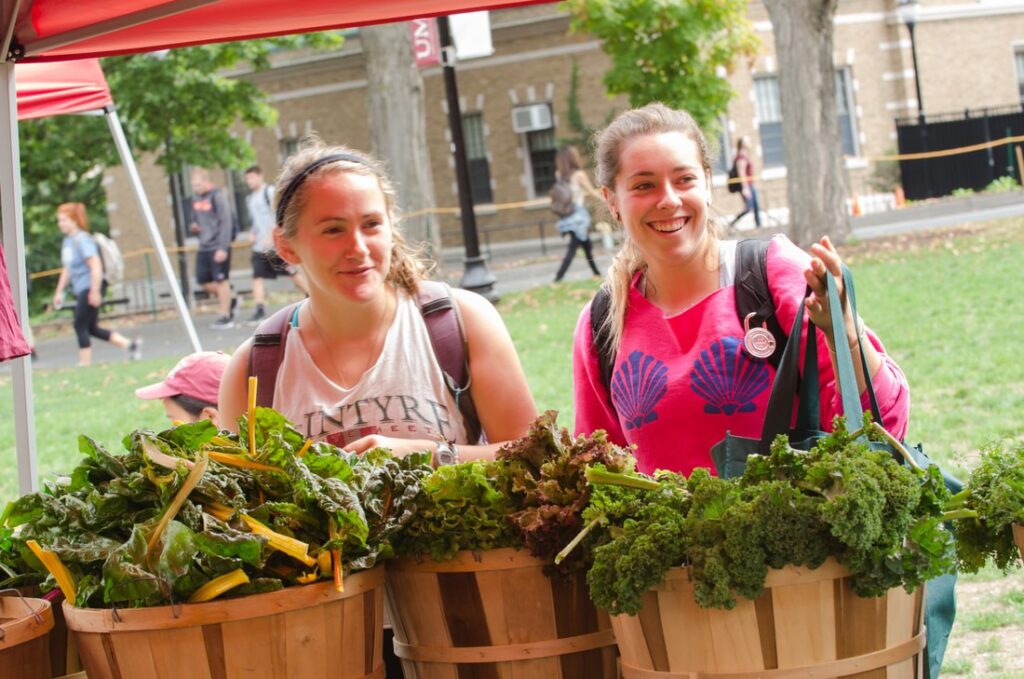
The Student Farming Enterprise’s CSA Pick-Up at the UMass Student Farmers’ Market.
CSA, short for Community Supported Agriculture, is a model used by many farmers to form a partnership between themselves and members of their community. This partnership is created when a customer buys a CSA membership, which then allows them to receive a certain amount of food from that farm each week in the form of a farm share. CSAs benefit both parties involved, as the membership provides up-front financial assistance to the farmer and guarantees the customer food from that farm.
While many people often think of farm shares as consisting solely of fruits and vegetables, they can take all different forms, with products like dairy, meat, grains and flowers. CSAs are often seasonal, as the items available each week are those that are ready to be harvested at that time of year. In New England, summer and fall farm shares are common, but winter shares – often featuring root vegetables, apples, cheese, honey, bread, and other products – are available as well.
According to Just Roots, a non-profit organization devoted to advocating for food justice and sustainable agriculture, the general framework of a CSA was first established in the early 1900s by a group of Japanese women who were concerned about the use of pesticides on imported and processed foods. Their system, called a “teikei,” translates literally to “partnership” or “cooperation.” More philosophically, and perhaps more appropriately, however, “teikei” translates to “food with the farmer’s face,” as CSAs provide members with the opportunity to get to know where – and whom – their food is coming from.
At a similar time as this Japanese model was being developed, various European countries were implementing similar cooperative systems inspired by a more holistic approach to growing food. It was only in 1984 that Jan Vander Tuin, a Swiss farmer who co-founded a CSA project named Topanimbur, located near Zurich, brought the concept to North America. Tuin presented the idea to Robyn Van En at Indian Line Farm in South Egremont, Massachusetts, marking the first CSA in the USA. Within just four years of its inception, Indian Line Farm’s CSA membership expanded from 30 to 150 members. Today, there are over 1,000 different CSAs located all across the country feeding roughly 150,000 individuals.

Two UMass students filling their bags with fresh vegetables as they pick up their farm share.
Unlike conventional food systems where food is transported from producer to processor to distributor to retailer, and finally to the consumer, CSAs take out all of these “middle-men” and establish a face-to-face connection between the farmer and the customer. At this point in time, many of us have become so far removed from where our food is coming from that we often forget just how much time, energy, and care goes into it. By returning to a system in which we directly support the farmers that grow our food, we can support the individuals whose operations form the backbone of our local economy while developing a deeper appreciation for the food that nourishes us.
There are countless farms that offer CSA shares in the Valley. For help choosing the CSA that would work best for you, check out CISA’s (Community Involved in Sustaining Agriculture) Guide to Choosing a CSA.
If you are part of the UMass campus community, consider signing up for the UMass Student Farming Enterprise’s CSA program. Commit to a farm share by May 1st and receive a $25 discount! Student Farm CSA pick up is each Friday from 12-4 in the Fall semester at the UMass Student Farmers’ Market, hosted by UMass Permaculture and the Student Farm. Email [email protected] for more information!
